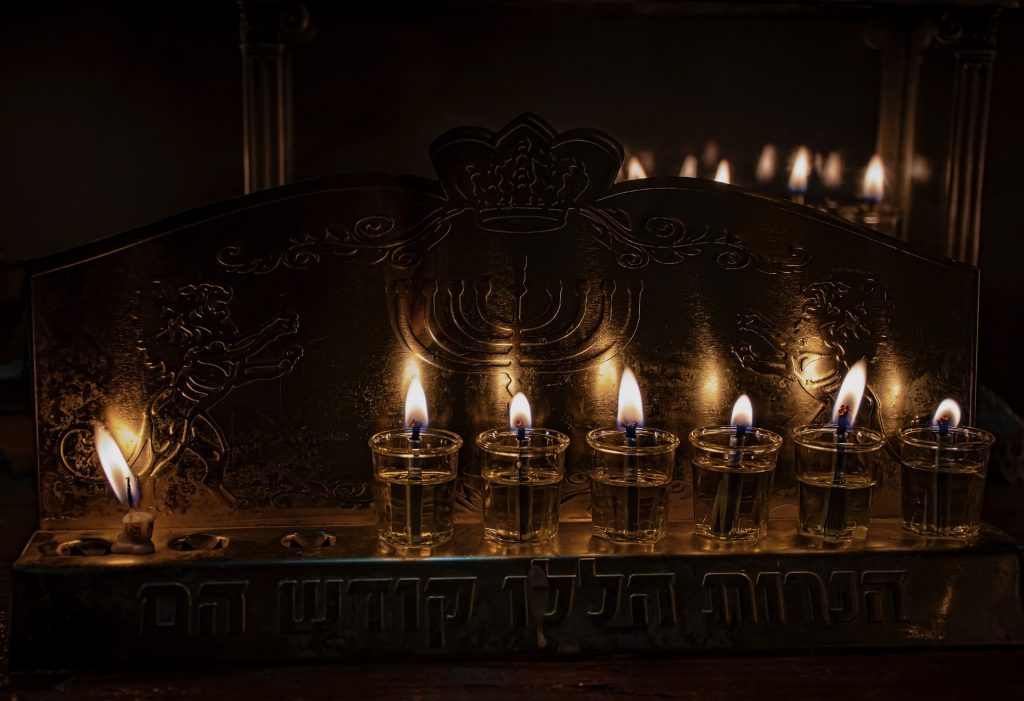「出会いの瞬間から:大人のリレーションシップ占星学」
第9章
親密な関係 – 8ハウス (Part2)
ブライアン・クラーク著 咲耶まゆみ訳
By Brian Clark Translated by Mayumi Sakuya
English text to follow.
「親密な関係-8ハウス (Part1)」はこちら→★
レガシー・遺産
遺産や相続もまた死のハウスの側面だ。継承するものが自分と相反するものかもしれないが、レガシーと向き合うプロセスを通して真の生得権を見つけることができるのだ。相続のハウスの8ハウスは、家族のレガシーを継承する領域である。それが心理的であろうと、情緒的であろうと、経済的であろうと。8ハウスの先祖の遺産を見つけることは容易なことではない。なぜならお金、性、愛に対する態度を観察することはめったにないからだ。8ハウスは冥界に関連している。冥界は、目に見えない過去からの遺産の比喩だ;これ故に、8ハウスは死者と対話する場所であることが創造できる。この領域は、遺産を取り戻してくれる家族の内輪の恥に直面する場所だ。古代では、冥界には宝が埋もれているとされていたことを覚えておくとよいだろう。
このハウスに隠れているものは、家族の問題やお金、意思、欲求の相続もある。過去の家族の問題には、お金を通じた心の操り、負債、相続争い、家族のお金の喪失や、経済的支配に対する深い感情もある。継承した負債や借金に対してどんな態度をしているか。共有資産に対する家族の取り組み方は?
8ハウスは、2つの家族が1つにまとまる場所だ。心理的には、8ハウスは家族の親密度や緊密度の度合いや欠如を表す; 従ってここの天体は家族の遺産だけでなく、家族の中の秘密の同盟やタブーも表す。8ハウスに埋葬されているのは、継承される家族の利得や喪失だ。これらの利得や喪失は、お金の相続や遺産のような経済的なものかもしれない。あるいは、負債に関する家族の物語かもしれない。多くの場合、利得や喪失は心理に基づいていることが多い。
緊密さのバロメーターとなる8ハウスは、成長する中で体験した両親との親密度を示す。私たちは両親のお金や資源に対してどのように信用しているか観察する。お金に関する争いは、お金そのものに関することではなく、愛されていなかったり、認められていなかったり、満たされていない気持ちに関することが問題になることが多い。私たちが愛する他者と自分の資源の共有し方は、家族の環境による影響を受け、成人の人生の経済的、心理的信用に影響を及ぼす。初期の人生の愛着、情緒的安定感、両親の問題を解決していないと、親密な関係を通して大人として追体験する傾向がある。私たちはパートナーと心理的、情緒的、経済的に「結婚」するか、または関係性を築いていく。
亡くなった人の遺言は、遺族の心の幸福に影響する。遺産、遺言、相続、共有資源、家族の信用に関する問題は全てこの領域に属する。8ハウスの遺言は、亡くなった人の意思を示すが、心理的、経済的に支配し続ける。人は死んでも、関係性は死なない。遺言を通して亡くなった人の欲求は生きるからだ。
タブー
‘taboo’という言葉は、トンガンtabuに由来するキャプテン・クックの造語で、「禁止される」という意味だ。通常、なぜならそれが守るものは経験のない者にとっては危険になる可能性があるからだ。タブーは神聖なものとされたり、特別な目的のためだけに限られるものだ;神秘を尊重する。タブーは神聖な目的に充てられ、私たちが意識的に知りえることよりも大きな何かに捧げられたり、犠牲になったりするものだ。心理的には、私たちが知っているタブーは近親相姦だ。タブーは、心理を個性化に向かわせる。なぜなら、タブーなくしては、心理が不活発、発育不良、退行のままであり続ける可能性があるからだ。
タブーは精神にとって本質的要素だ。親密さに対する無意識のタブーはよくある。なぜなら、親密さは個人の秘密、家族の恥、文化的偏見を露出するからだ。しかし、親密さは個人化のプロセスの一部であるため、避けることはできない。4ハウスでは、近親相姦のタブーは、英雄の自分のイメージを家族から離れて作り上げることを促す。8ハウスでは、親密さは超越した自分を解放する。親密な出会いは、相手の前では真の自分になって、丸裸になることであるので、神聖だ。意識的、計画的な緊密さよりも、親密さは道徳的で無意識の性質を持つ。7ハウスと平等性と8ハウスの依存性を区別する際に役立つ。親密になることは、欲求と激情、愛と喪失、融合と死の本能的感覚に戻ることを意味する。大人の関係性ではこれらの危険な正反対の物同士を意識的に取り組む。
本能的、あるいは未処理の感情は8ハウスの表面下にある。それらは危険を感じるので制御統制されているが、情緒的な圧力で防衛が根負けすると噴出する。ネガティブな感情はこの領域の正真正銘の一部だ。非難される時、聞こえたり、目にしたりすることはできないが、解放と変容には必要な行為だ。避難はそれらを寄せ付けないようにするが、避けることのできない感情の出現を遅らせているだけに過ぎない。これらの感情の一つに嫉妬がある。
嫉妬は関係性における正真正銘の感情だ。嫉妬や激情が今の関係性の中で噴出するときは、前の関係性の中でパートナーと親密に分かち合ったものに反応していることが多い。離婚手当、養育費、元パートナーからの電話は、取り残されてしまうか、愛されなくなることへの怖れを引き起こすこともある。しかし、同時にここで他に引き起こされるのは、幼少期に抱いた心細さ、不安感、見捨てられたり、取り残されてしまったときのイメージでもある。現在の親密さは過去を露呈する。それは未来の予言や予測のために露呈されるのではなく、大人の関係性の中で緊密さにもう一度取り組もうとするためだ。
三角関係は親密さがもたらす深い融合から生まれる。それは家族や若かった頃の友人関係を反映する。三角関係に関わるものがもう一人の人物であれ、子供であれ、仕事であれ、他の関心事やプロジェクトであれ、三角関係と無縁のカップルは少ない。これは必ずしも悲惨な終わりになるとは限らない。なぜなら関係性は変容する可能性もあるし、相手のパートナーに対する愛の中で強くなっていくからだ。時に、三角関係の中の「他者」は架空の人物であることもある。そして、それらの心象・イメージや感情をパートナーと分かち合うことができれば、関係性の親密度を高めることもできる。
愛と変容
結婚式はパートナー同士が相手の神聖なものを見つけたいという欲求に応えるための儀式だ。結婚指輪、神聖な誓いや他の象徴は、文化にもよるが、結婚の始まりの儀式の一部だ。錬金術では、神秘的な結婚はconiunctio、あるいは、conjunction(コンジャンクション・共起)だった。これは、相反するものの化学的融合により新しい可能性が形成されることを意味する。しかし、融合が起こる前には、他者は、相手との対立や違いも融合し、一つになることができるように溶解しなければならない。
親密な関係における変容は、外的と内的の結合を通して行われる。エロスの変容は初期の頃の傷を癒し、愛する人物、ソウルメイト、恋人、他様々な魂もまた内的な存在だ。分かち合いの衝動が深い愛情の中で定着すると、自分自身を信頼することができ、喪失の怖れを手放して自由に相手に与えることができるようになるのだ。
以上。
ブライアン・クラーク先生の抜粋翻訳(各サインの金星と火星解釈)付き書籍「出会いの瞬間から:大人のリレーションシップアストロロジー」の購入はこちらから。

From the Moment We Met: The Astrology of Adult Relationships
CHAPTER 9
Intimacy – The Eighth House (Part 2)
by Brian Clark
To read Intimacy -The Eight House (Part 1)click here ★
Legacies
Inheritances are another aspect of the house of death. What we inherit might be at odds with who we are, but through the process of confronting our legacy we find the authenticity of our birthright. As the house of inheritance, the 8th house territory is where we claim our familial legacy, whether psychologically, emotoinally or financially. Unearthing the ancestral inheritance of the 8th house is not straightforwartd because the inherited atitudes towards money, sex and love are rarely examined. The 8th house is associated with the landscape of the underworld, metaphoric of the unseen inheritances an dlegacies from the past; hence we can imagine the 8th house as where we might communicate with the dead. This spehere is where we encounter some skeletons in the family closet that jelp us reclaim our legacy. It is wise to remember that in antiquity the underworld was the source of buried treaurer.
Hidden in this house might also be family issues and legacies about money, wills and desires. Issues in the familial past might include emotional manipulation through money, debt, disputes regarding inheritances, the loss of family money or deep-seated feelings towards financial control. What was the attitude towards debt or borrowing money that we inherited? What was the familial approach towards sharing resources?
The 8th house is the place where the two sides of a family merge into one. Psychologically, the 8th house reveals the capacity for, or the lack of, familial intimacy and closeness; therefore, planets here will not only describe the family inheritance but secret alliances and taboos in the family. Interred in the 8th house are the familial gains and losses which are passed down. These gains and losses might be financial, as in monetary bequests and inheritances, or they might be a familial story of debt. In many cases the gains and losses are emotionally based.
As a barometer of closeness, the 8th house refers to the degree of parental intimacy experienced when growing up. We observe our parents’ trust of one another over money and resources. Arguments about money are often never really about money but the sense of feeling unloved, unacknowledged or unmet. How we might share our personal resources with others we love is influenced by the family atmosphere and affects our feelings of financial and emotional trust in adult life. The attachment, emotional security and parental issues of our early life, if not yet resolved, will be prone to being re-experienced in an adult way through intimate relationships. We also ‘marry’ into or relate to our partner’s psychological, emotional and financial composition.
Taboos
The word ‘taboo’ was coined by Captain Cook from the Tongan tabu and it means ‘prohibited’, usually because what it protects may be of danger to the uninitiated. A taboo is consecrated or keeps something restricted to a special purpose; it honours a mystery. A taboo is devoted to a sacred purpose, dedicated or sacrificed to something larger than what we can know consciously. Psychologically, the taboo we are most familiar with is the incest taboo whose function is to steer the course of psychic energy away from the regressive desire for the parent. A taboo propels the psyche towards individuation, as without the taboo the psyche may remain inert, stunted or regressive.
Taboos are essential to psychic life. There is often an unconscious taboo against intimacy, since intimacy exposes personal secrets, familial shame and cultural prejudices. But intimacy is part of the individuation process and therefore cannot be avoided. In the 4th house, the incest taboo encourages the image of the heroic self to be developed away from the family. In the 8th house, intimacy potentially unlocks the transcendent self. Intimate encounters are sacred because we are authentic and stripped bare in the presence of another. Intimacy is didactic and unconscious by nature, unlike closeness which is more conscious or systematic;53 a helpful distinction between the equality of the 7th and the dependency of the 8th house. To be intimate implies a return to instinctual feelings of desire and rage, love and loss, union and death. In adult relationships these dangerous opposites can be consciously addressed.
Instinctual or unprocessed feelings lie below the surface of the 8th house. Since they feel dangerous they are controlled and managed, but erupt when emotional pressures wear down their defences. Negative feelings are an authentic part of this territory. When judged they cannot be heard or witnessed, a necessary act for their release and transformation. Judgement keeps them at bay yet only delays their inevitable advent. One of these feelings is jealousy.
Jealousy is an authentic feeling in relationship. When jealous or raging feelings erupt in a present-day relationship they may often be in response to what our partner shared intimately in a previous relationship. Alimony payments, child support and phone calls from an ex may activate our fears of being left or loved less. However, what are also triggered are earlier feelings of helplessness, fears, even memories of abandonment or images of being left. The present intimacy exposes the past, not as a prophecy or prediction of the future, but as an attempt to rework closeness in an adult context.
Triangles emerge out of the depth of union that intimacy brings. It echoes the triangular relationships in our families and early friendships, and few couples are untouched by triangular situations, whether that is another person, child, work, an outside interest or a project. This does not always have a disastrous ending, as relationships can be transformed and each partner strengthened in their love for one another. Sometimes ‘the other’ in the triangle may be a fantasy figure and when these images and feelings can be shared with the partner, they can enhance the intimacy of the relationship.
Love and Transformation
The wedding ceremony is a ritual that addresses each partner’s urge to find the divine. The wedding ring, the sacred vows and the other symbols, depending on the culture, are part of the rites in the marriage initiation. In alchemy the mystic marriage was the coniunctio, or the conjunction. This represented the chemical fusion of opposites that gave form to a new possibility. But before union could occur, the opposites had to be melted down so their conflict or oppositeness could fuse together as one.
The transformation available in intimate relationships is through the outer union to the inner one. Eros’s transformation heals earlier wounds and helps us to recognize that the figures of the beloved, the soulmate, the lover and the kindred spirit are also internal. When the urge to share is anchored in a deeper sense of love and we are able to trust ourselves, we can give freely without the fear of loss.
Ends





